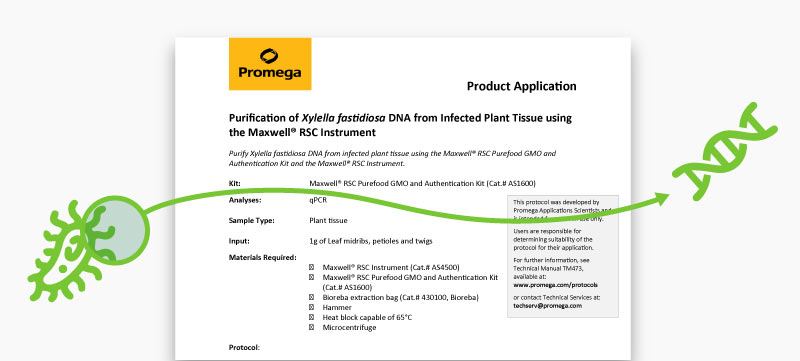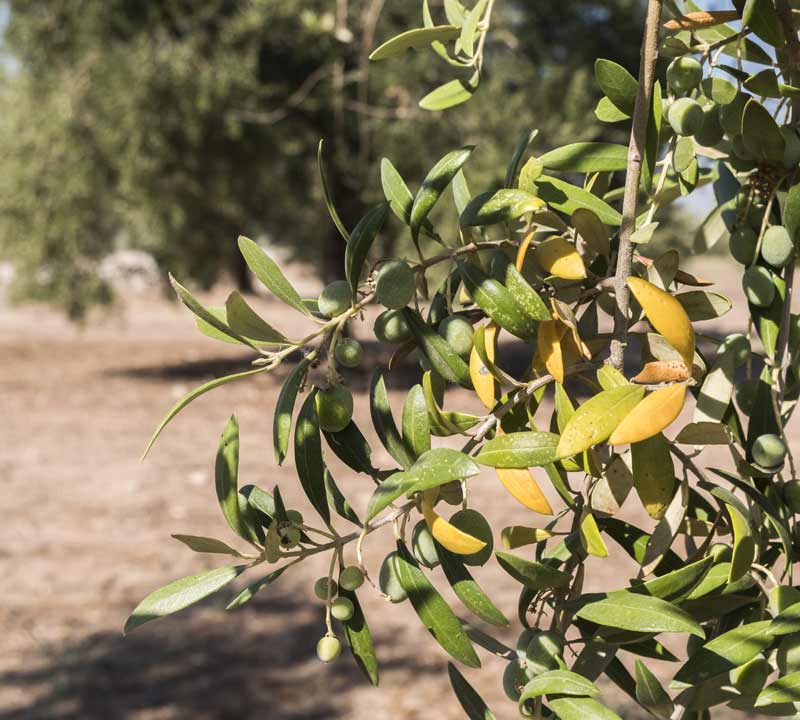Plant Pathogen Detection
Plant pathogens that cause plant diseases can harm our agricultural ecosystems and have devastating impacts on our livelihoods. Scientists studying plant pathology or phytopathology in agriculture play a key role in monitoring and managing plant diseases. To support their efforts, we provide molecular tools that can rapidly and accurately detect and diagnose plant pathogens such as viruses, viroids, bacteria, fungi and yeast.
Need faster and more reliable plant pathogen detection? We’re here to help!
Plant Pathogen DNA/RNA Extraction

Protocols for Plant Pathogen Nucleic Acid Purification
Find protocols below for extracting plant pathogen DNA/RNA from infected plant tissue.
Can’t find what you need? Contact our Technical Services team and they’ll work with our Applications Scientists to develop a solution just for you!

Maxwell® Kits for Plant Pathogen DNA/RNA Extraction
Maxwell® RSC PureFood GMO and Authentication Kit
Safe, automated DNA purification from food and feed samples.
AS1600
Maxwell® RSC Plant RNA Kit
Extracts RNA from plant tissue samples using the Maxwell® RSC Instrument.
AS1500
Maxwell® RSC Plant DNA Kit
Extracts DNA from plant tissue samples using the Maxwell® RSC Instrument.
AS1490
Plant Pathogen PCR Detection
Our qPCR and RT-qPCR products can detect and amplify target sequences of plant pathogens to accurately diagnose plant diseases. We provide custom made-to-order PCR master mixes to detect your plant pathogen of interest, and the PCR Optimization Kit can help you determine the optimal amplification condition.
Xylella fastidiosa Detection Methods
Xylella fastidiosa is a plant pathogen that has caused immense destruction to our environment and economy. This bacterium is spread by insects and infects plant xylem, the tissue that transports nutrients from roots to leaves, causing the plant to starve and die within 1–2 years. Currently there is no cure for X. fastidiosa infection, and it has now spread across the globe. In Europe, 20 million olive trees have been infected, devastating the olive oil industry.
Molecular methods that allow fast, automated X. fastidiosa detection are crucial for monitoring the spread of the disease. Maxwell® RSC Instruments along with the Maxwell® RSC PureFood GMO and Authentication Kit is an established automated nucleic acid extraction method for identifying X. fastidiosa in infected plant tissue. An interlaboratory report supported by the European Union showed that the Maxwell® method achieves highly sensitive, accurate and reproducible results, with greater efficiency than traditional CTAB extraction.
Learn more about Xylella fastidiosa detection and how the Maxwell® method compares with CTAB extraction in this blog.
